Technologies
Technologies enrich and impact on the lives of people and societies globally. Australia needs enterprising individuals who can make discerning decisions about the development and use of technologies and who can independently and collaboratively develop solutions to complex challenges and contribute to sustainable patterns of living. Technologies can play an important role in transforming, restoring and sustaining societies and natural, managed and constructed environments.
The Australian Curriculum: Technologies ensures that all students benefit from learning about and working with traditional, contemporary and emerging technologies that shape the world in which we live. By applying their knowledge and practical skills and processes when using technologies and other resources to create innovative solutions, independently and collaboratively, they develop knowledge, understanding and skills to respond creatively to current and future needs.
The practical nature of the Technologies learning area engages students in critical and creative thinking, including understanding interrelationships in systems when solving complex problems. A systematic approach to experimentation, problem-solving, prototyping and evaluation instils in students the value of planning and reviewing processes to realise ideas.
All young Australians should develop capacity for action and a critical appreciation of the processes through which technologies are developed and how technologies can contribute to societies. Students need opportunities to consider the use and impact of technological solutions on equity, ethics, and personal and social values. In creating solutions, as well as responding to the designed world, students consider desirable sustainable patterns of living, and contribute to preferred futures for themselves and others.
This rationale is extended and complemented by specific rationales for each Technologies subject.
- Plus Plan
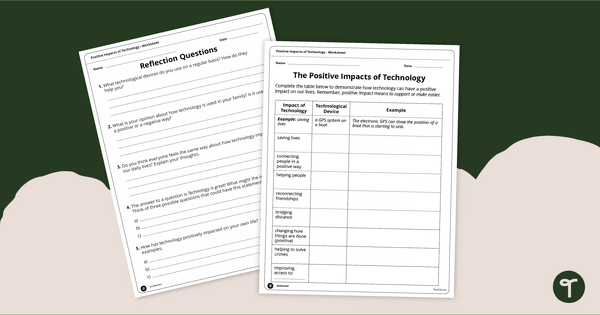
Positive Impacts of Technology Worksheet
Exploring the positive impacts of technology in the community with a pair of printable worksheets.
- Plus Plan
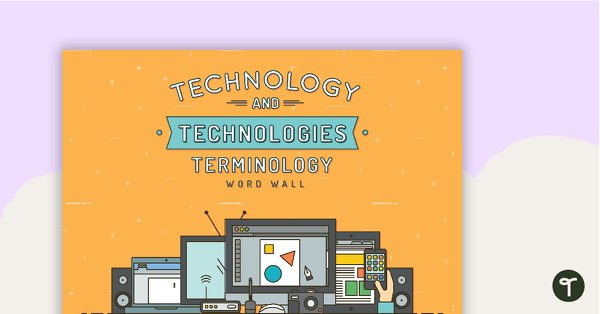
Technology and Technologies Terminology - Word Wall
96 vocabulary word wall cards and a poster about technology, to display in your classroom.
- Plus Plan
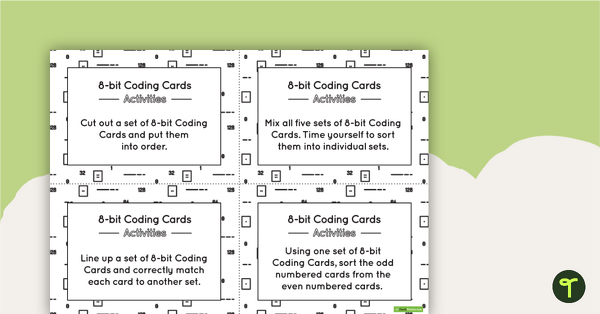
8-bit Coding Card Packs with Activities
A set of 8-bit coding cards with associated activities to assist students in understanding 8-bit coding.
- Plus Plan
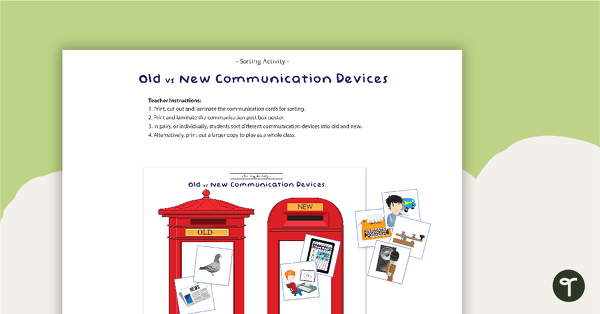
Old vs New Communication Devices - Sorting Activity
A fun sorting activity for students to identify old and new communication devices.
- Free Plan
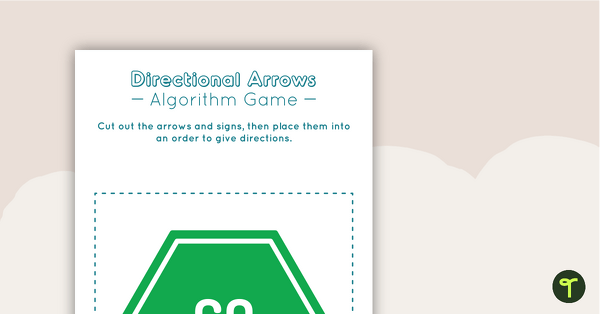
Directional Arrows Algorithm Game
A game to help teach your students directional instructions in sequencing (algorithms).
- Plus Plan
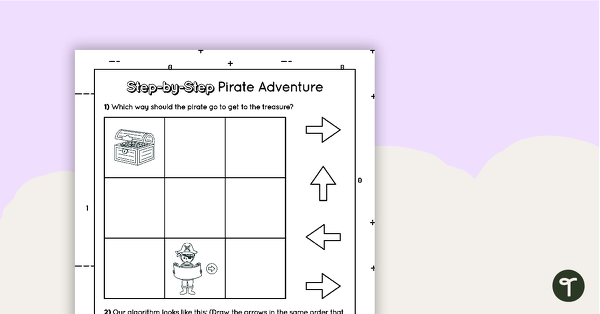
Step by Step Introductory Worksheet for Algorithms - Pirate Adventure
A 1 page worksheet for students to use when learning how to write an algorithm.
- Plus Plan
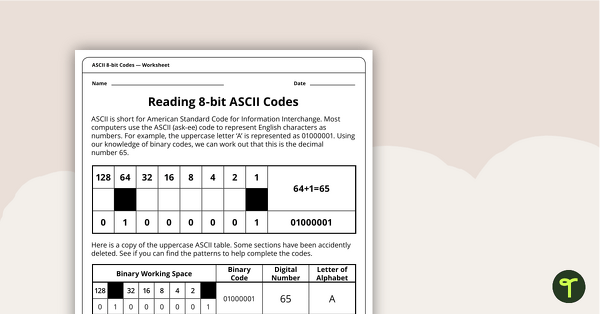
Reading 8-bit ASCII Codes - Worksheet
A worksheet to assist students in understanding what actual computer code (ASCII- current 8-bit version) looks like.
- Plus Plan
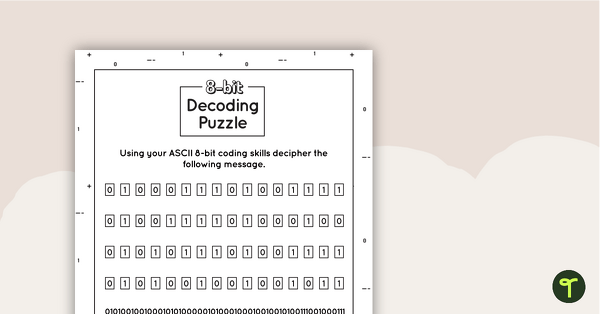
8-bit Decoding Puzzle
A puzzle for students to solve when consolidating their understanding of coding.
- Free Plan
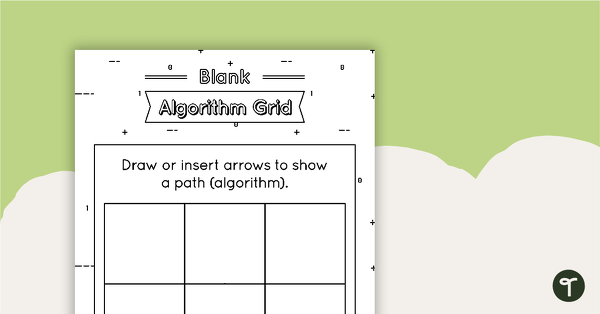
Blank Algorithm Grid - Black and White
An activity for students to use when learning about algorithms (directions).
- Plus Plan
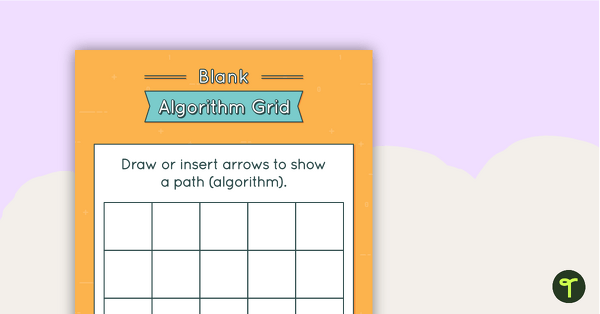
Blank Algorithm Grid - Colour
An activity for students to use when learning about algorithms (directions).
- Plus Plan
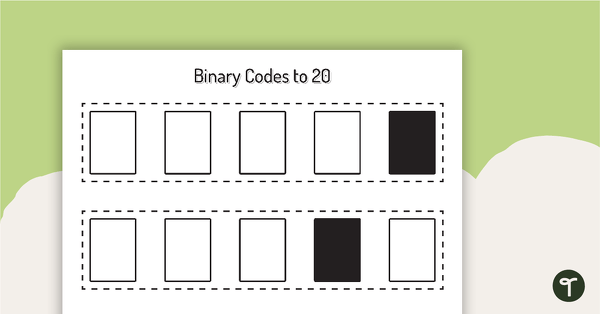
Binary Codes without Guide Dots to 20 Cards
Coding cards for teachers to use when teaching about the total numeric value of a bit code.
- Plus Plan
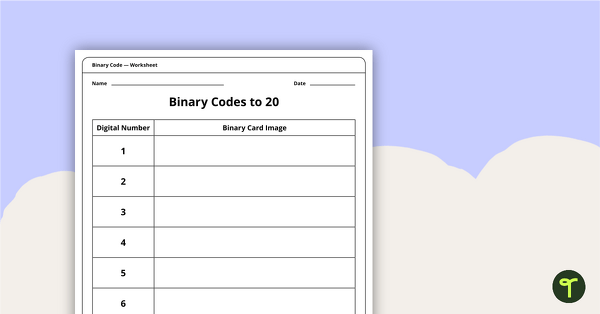
Binary Codes to 20 without Guide Dots - Worksheet
An activity for students to complete when learning how to read and write in code.
- Plus Plan
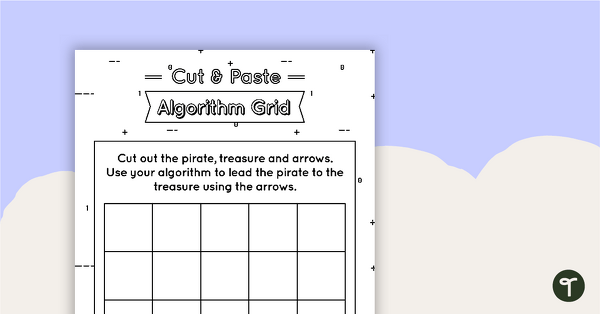
Cut and Paste Algorithm Grid - Black and White
An activity for students to use when learning about algorithms (directions).
- Plus Plan
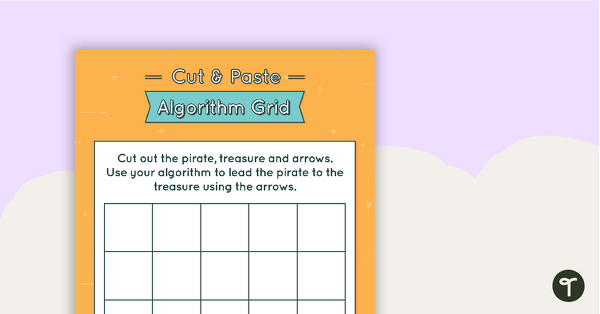
Cut and Paste Algorithm Grid - Colour
An activity for students to use when learning about algorithms (directions).
- Plus Plan
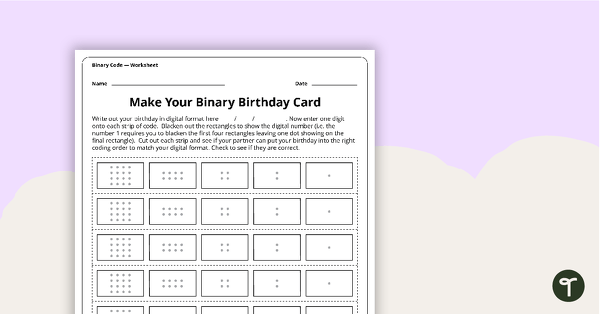
Make Your Binary Code Birthday Card Activity
A worksheet for students to use when learning about the total numeric value of a bit code.
- Plus Plan
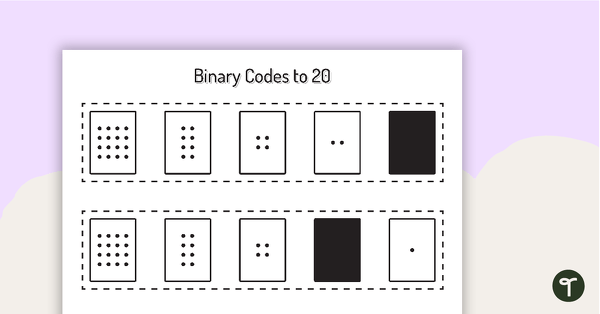
Binary Codes with Guide Dots to 20 Cards
Coding cards for teachers to use when teaching about the total numeric value of a bit code.
- Plus Plan
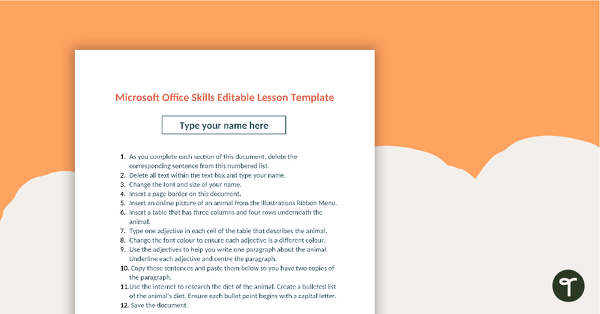
Editable Word Processing Template
An editable template for students to consolidate word processing skills.
- Plus Plan
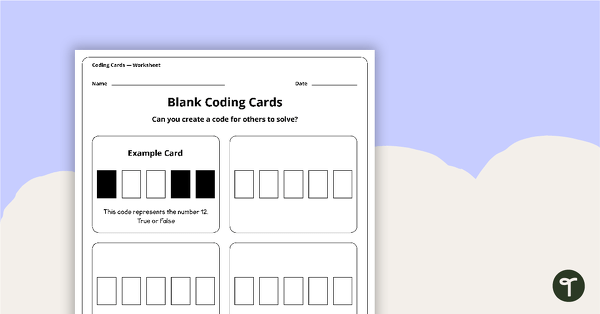
Blank Binary Coding Cards - Worksheet
A worksheet to assist students in creating their own binary codes.
- Plus Plan
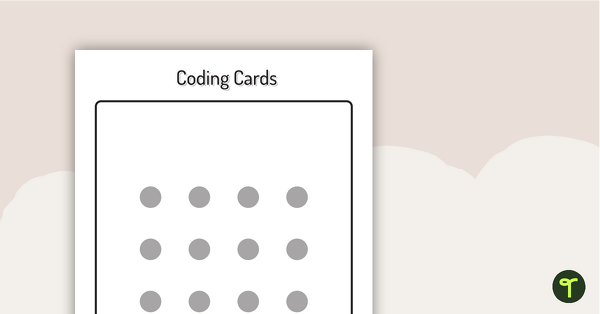
Binary Coding Cards
Use these binary coding cards to demonstrate how to ‘switch’ a ‘digit’ on or off.
- Plus Plan
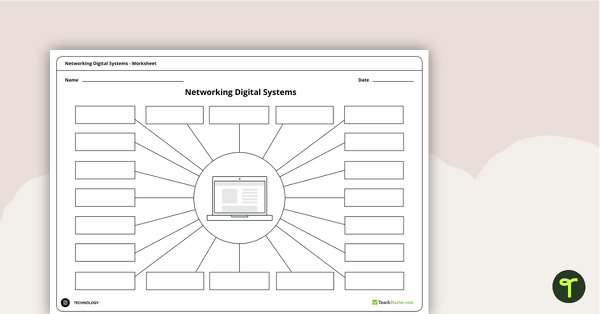
Networking Digital Systems Brainstorming Worksheets
A brainstorming sheet that encourages students to consider all possible devices that can be networked with a laptop, a computer and a tablet.
- Plus Plan
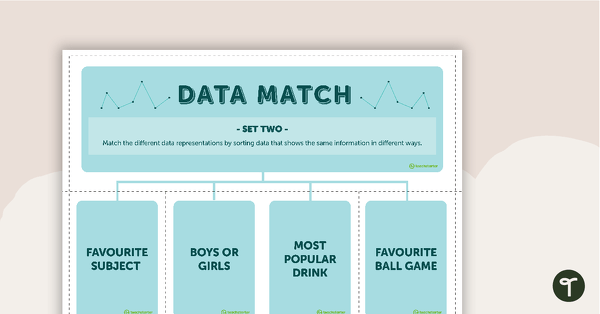
Data Match-Up Cards (Set 2)
A match-up activity for students to use when exploring data.
- Plus Plan
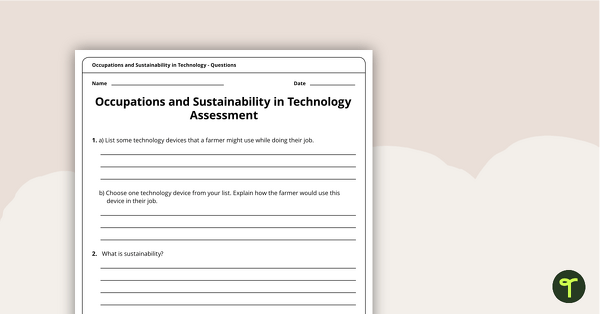
Occupations and Sustainability in Technology Assessment
A four-page assessment task covering occupations and sustainability in technology.
- Plus Plan
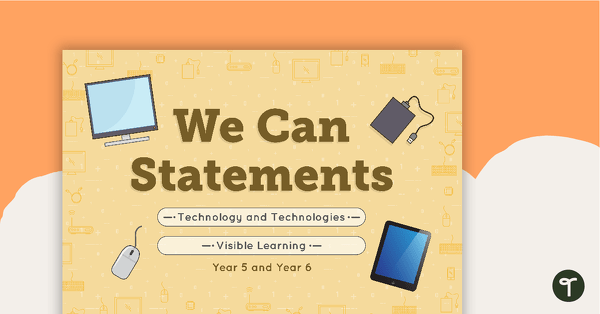
Class 'We Can' Statements - Technology and Technologies (Upper Primary)
A set of 28 class 'We can' statement cards linked to the Australian Digital Technologies Curriculum.
- Plus Plan
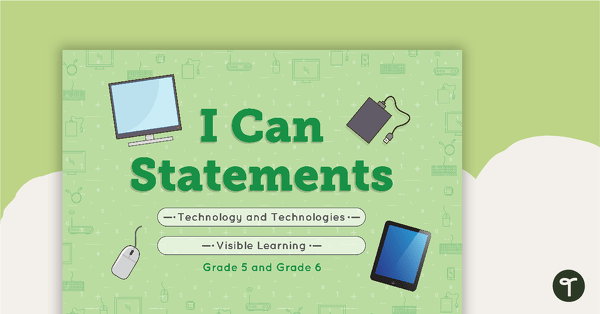
'I Can' Statements - Technology and Technologies (Upper Elementary)
A set of 45 'I can' statement cards.
- Plus Plan
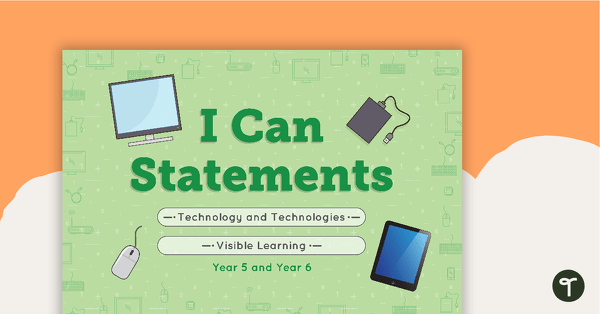
'I Can' Statements - Technology and Technologies (Upper Primary)
A set of 45 'I can' statement cards linked to the Australian Digital Technologies Curriculum.
- Plus Plan
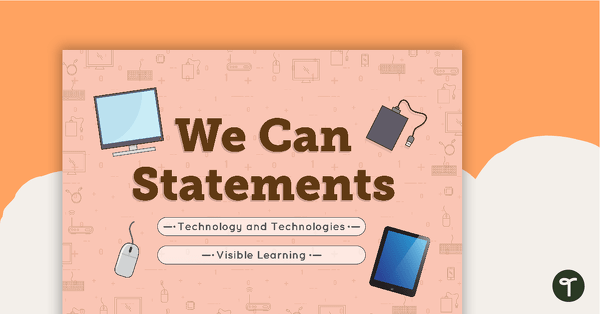
Class 'We Can' Statements - Technology and Technologies (Middle Primary)
A set of 7 class 'We can' statement cards linked to the Australian Digital Technologies Curriculum.
- Plus Plan
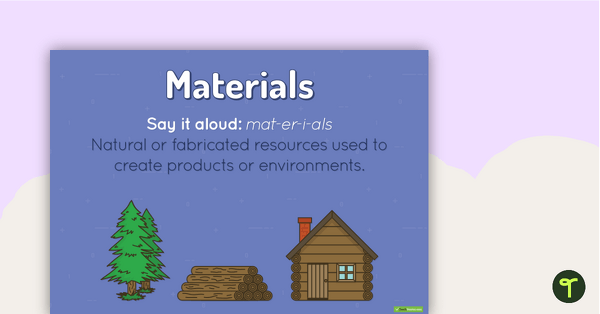
Materials Poster
A poster showing the definition and an example of materials.
- Plus Plan
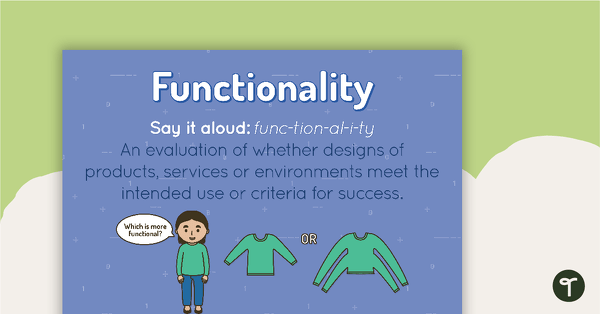
Functionality Poster
A poster showing the definition and an example of Functionality.
- Plus Plan
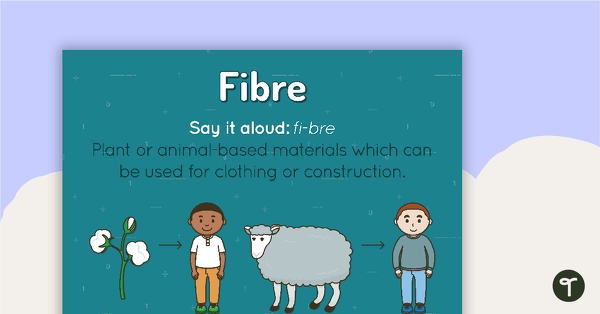
Fibre Poster
A poster showing the definition and an example of fibre.
- Plus Plan
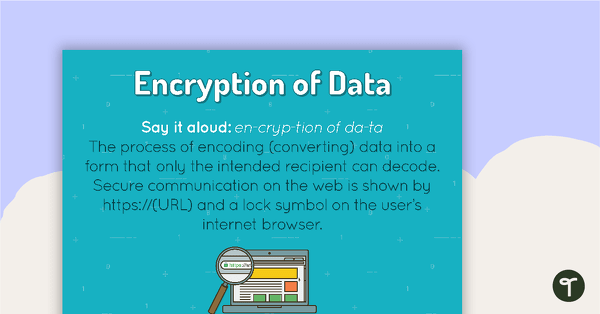
Encryption of Data Poster
A poster showing the definition and an example of data encryption.
- Plus Plan
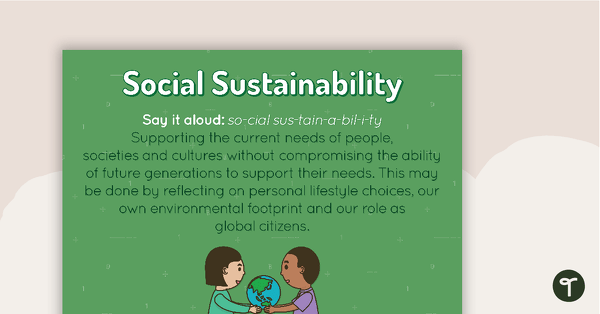
Social Sustainability Poster
A poster showing the definition and an example of social sustainability.
- Plus Plan
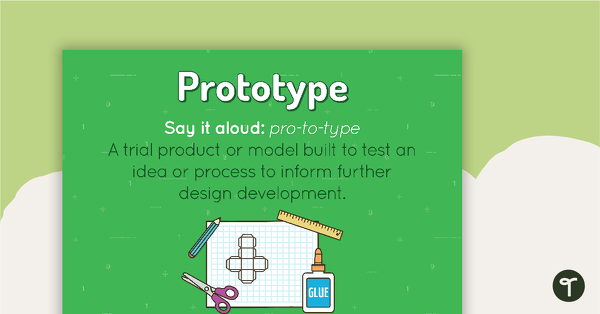
Prototype Poster
A poster showing the definition and an example of a prototype.